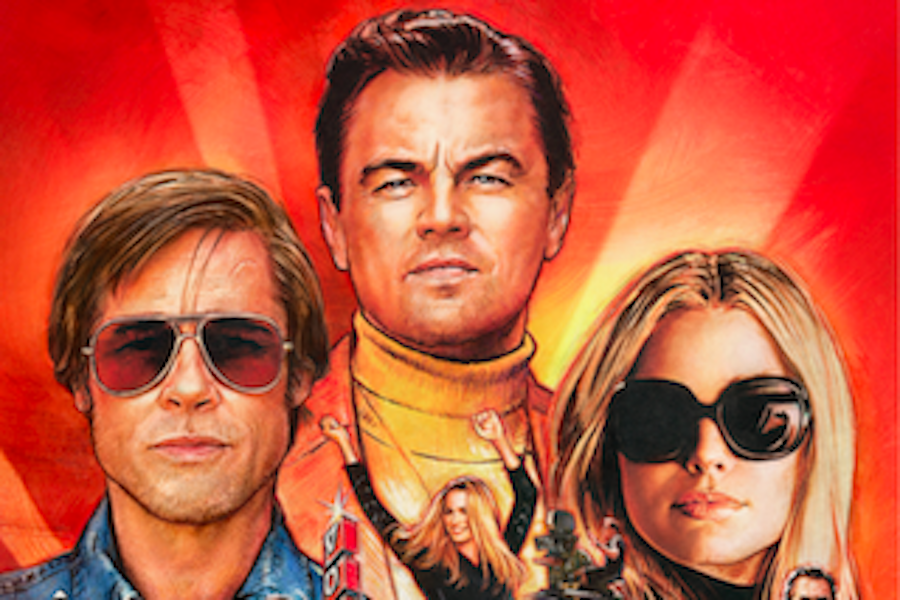REVIEW: Making violence funny in Tarantino’s ‘Once Upon a Time in Hollywood’
October 13, 2019
Comic relief is a popular way of alleviating pain or lightening the intensity of violence in films. But generating laughter while displaying gruesome and violent scenes is hard to achieve, especially while aiming to maintain a well-written script.
Quentin Tarantino’s newest masterpiece makes this happen in a way that creates an opportunity to examine how such a thing could be funny.
Once Upon a Time in Hollywood takes you through Hollywood in 1969, focusing primarily on Rick Dalton, played by Leonardo DiCaprio, a has-been alcoholic Western movie star, and Cliff Booth, played by Brad Pitt, Rick’s stunt-double, driver and friend.
A storyline links their friendship to the Manson family murders, which happened at the same time period the movie takes place. The actress and real-life victim Sharon Tate, played by Margot Robbie, and her husband Roman Polanski, who is barely shown in the movie, are next-door neighbors to Rick, who dreams of being cast in one of Polanski’s films.
Cliff ends up driving a young hitch-hiking hippie to what turns out to be Charles Manson’s ranch, which is where this passenger lives.
The scene at the ranch is quite comedic in its absurdity. An arrogant hippie who is part of the cult flattens a tire in Rick’s car, which Cliff used to drive there. Cliff — a tough guy who doesn’t let anyone mock or annoy him — responds by beating up the teenager gruesomely, bashing him in the face and mouth to force him to put on a new tire.
The ranch girls watch in a combination of pity and awe as Cliff repeatedly bangs the boy’s head until it is bloodied; one girl even mouths the words “I love you” in the victim’s direction. These hippies are evidently evil and brainwashed and the viewer may identifies less with the victim than with the tough and careless individual who is weirded out by the group’s hysterics.
A similar reaction is ignited when Cliff starts a fight with Bruce Lee, played by Mike Moh. On a set of a movie he was playing Rick’s stunt double in, Cliff sees Bruce talking about how good of a fighter he is.
Annoyed by his arrogance, Cliff speaks up and ridicules him, and Bruce responds by proposing a friendly fight. Bruce is confident and loud, even claiming his hands are “registered as lethal weapons,” but Cliff easily wins their little duel.
Meanwhile, the movie’s soundtrack evokes the era in which the movie takes place. With classic hits like “Mrs. Robinson,’’ “California Dreamin’”and “Brother Love’s Traveling Salvation Show” playing on Rick’s radio, Tarantino showcases the popular music of 1969.
At the end, when the clock is ticking toward the hippies invading Tate and Polanski’s home, “Out of Time” by the Rolling Stones is playing, fitting perfectly with the moment.
Although I don’t want to give away the ending, I will say that everyone in the theater I was in was laughing hysterically by the finale. Of course, the Manson murders were a tragedy, and an event in history that will always go down as uniquely horrific. But Quentin Tarantino depicted the event in a different way.
Tarantino is known for his violent yet comedic films, and this one is no exception. However, considering how gruesome the movie was, the audience response raises the question of why it can be thought of as funny. There is always a debate after he releases a film over whether or not he is promoting violence.
While many people may laugh at bloody scenes, almost none of them would react that way while witnessing real violence in person. Movies are inherently unrealistic; like satire and cartoons, even if they are based on true events, their goal is to entertain.
In Once Upon a Time in Hollywood, Tarantino pushes that envelope even further to achieve this end — mixing violence with humor. The film’s worldwide success indicates that laughing at cruelty is a common experience — at least at the movies, and maybe only when in the hands of someone who is capable enough to pull it off. Someone like Quentin Tarantino.














